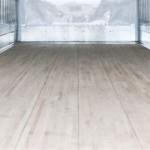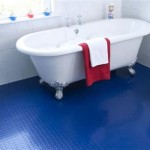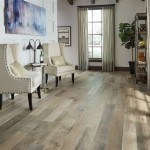Carbonized Bamboo Flooring: Pros and Cons
Carbonized bamboo flooring has gained popularity as a sustainable and aesthetically pleasing alternative to traditional hardwood flooring. Its unique dark hue and durability make it an attractive choice for various interior design styles. However, it is crucial to weigh the pros and cons before deciding if carbonized bamboo flooring is the right fit for your home.
Pros of Carbonized Bamboo Flooring
Durability and Hardness
Carbonized bamboo flooring boasts exceptional durability and hardness, often surpassing that of many hardwood species. The carbonization process involves heating bamboo strands at high temperatures, which enhances its density and resistance to scratches, dents, and wear. This makes it an ideal choice for high-traffic areas like living rooms, kitchens, and hallways, where floorings are subjected to frequent foot traffic and potential damage.
Unique Aesthetics
The distinctive dark color of carbonized bamboo flooring adds warmth and sophistication to any space. The rich brown hues range from deep mahogany to almost black, lending a sense of elegance and depth to the interior. This darker color contrasts beautifully with lighter furniture and wall colors, creating visually appealing spaces. The natural grain patterns of bamboo add another layer of visual appeal, enhancing the overall aesthetics.
Sustainability and Environmental Friendliness
Bamboo is a fast-growing and renewable resource, making it an environmentally friendly choice for flooring. Unlike hardwood, which requires many years to mature, bamboo can be harvested within three to five years. This rapid growth cycle minimizes the environmental impact associated with deforestation and promotes sustainable forestry practices. Carbonized bamboo flooring also contributes to lower emissions during production due to the use of natural processes and fewer chemical treatments.
Cons of Carbonized Bamboo Flooring
Price
Carbonized bamboo flooring can be more expensive than traditional hardwood flooring. The carbonization process and the intricate techniques involved in manufacturing this type of flooring contribute to the higher cost. While the initial investment might seem high, the durability and longevity of carbonized bamboo flooring can offset the cost over time.
Sensitivity to Moisture
Despite its durability, carbonized bamboo flooring can be sensitive to moisture damage. Exposure to excessive humidity or water can cause warping, swelling, and even mold growth. Proper installation, including appropriate moisture barriers and ventilation, are crucial to prevent these issues. Using water-based polyurethane finishes can also enhance the flooring's resistance to moisture.
Limited Color Options
Carbonized bamboo flooring primarily features dark shades, which might not be suitable for all design preferences. Some homeowners prefer lighter flooring options for a brighter and more spacious feel. While there are variations in the depth and intensity of the carbonized hues, the choice of color options remains limited compared to traditional hardwood flooring. However, manufacturers are exploring new techniques and offering a wider range of colors, including lighter shades.

Pros And Cons Of Bamboo Flooring

Bamboo Flooring Pros And Cons Forbes Home

Engineered Bamboo Flooring Pros And Cons Best Brands Floorings

The Pros And Cons Of Bamboo Flooring Astrobrite Local Family Run

Bamboo Flooring Pros Cons Advantages Disadvantages

Pros Cons Of Bamboo Flooring Claude Browns

Engineered Bamboo Flooring Pros And Cons Best Brands Floorings

Pros And Cons Of Bamboo Flooring Vs Laminate Builddirect
Pros And Cons Hardwood Floors Vs Bamboo Flooring Builder

Pros And Cons Of Bamboo Flooring Surgeons
Related Posts








